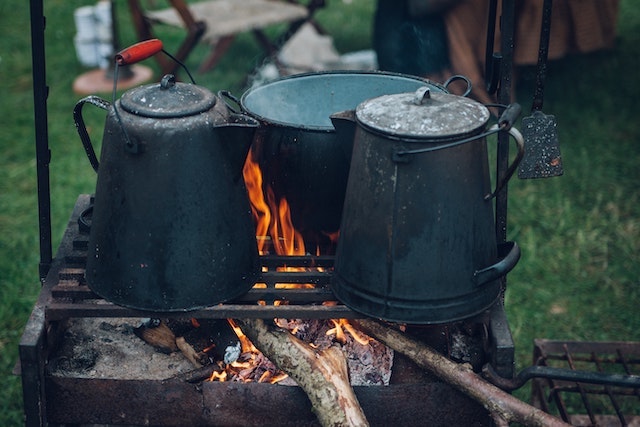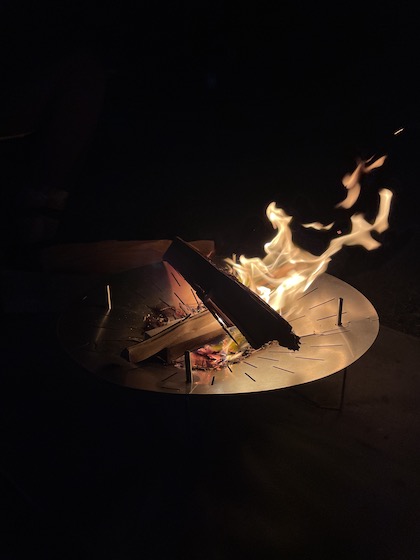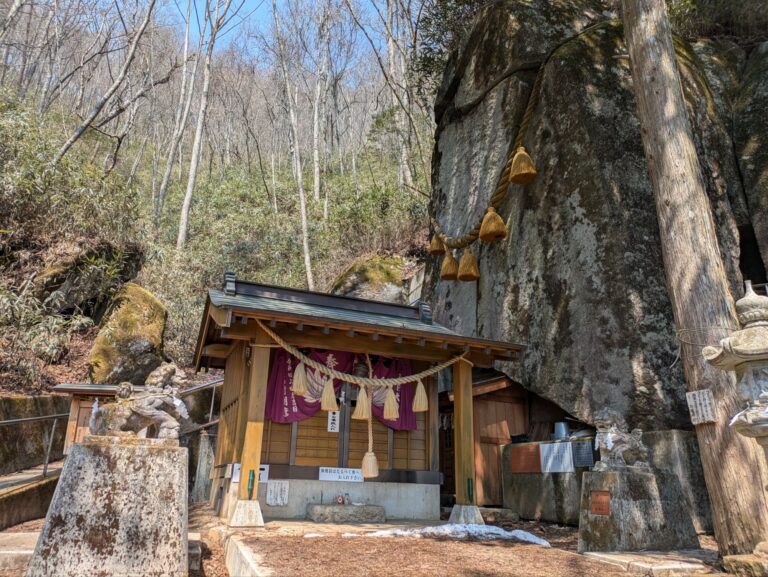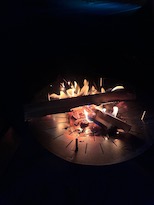Winter camping, or “winter camping,” is attractive for its clean winter air, tranquility, and unique scenery, but it is also quite challenging for beginners and families. Camping in the harsh cold of nature requires a certain amount of preparation and knowledge. In this article, we will introduce some of the preparations and methods to enjoy winter camping in comfort.
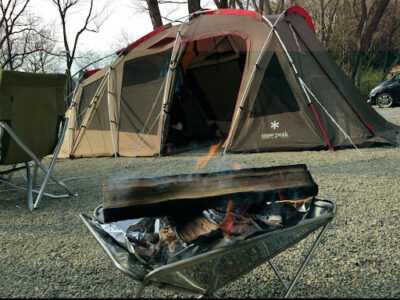
- Basic Knowledge of Winter Camping Winter Camping
- Required equipment and how to select it
- Where and how to set up tents
- Meals at camp
- Safety
- Summary
Basic Knowledge of Winter Camping Winter Camping
Winter camping requires special preparation compared to other seasons. Cold, snow, wind, and other natural conditions in winter present many more obstacles to overcome than in other seasons. Proper measures and preparation are essential to overcome these harsh conditions and enjoy camping in the great outdoors in winter.
Winter Camp Attraction- Winter scenery: One of the attractions of winter camping is the starry sky in the clear air and the silvery white world created by snow and other elements. This is a rare opportunity to experience nature in a way that is difficult to see in our everyday lives.
- Quietness: In winter, fewer people camp due to cold weather and inexperience, so it is easier to have a quiet and private space than in other seasons. With fewer people in nature, you will be able to enjoy a sense of oneness with nature.
- Fewer insects: In the summer, insects are plentiful and insect control is essential, but winter is more comfortable than summer because there are no summer insects. You may also see animals that are more active in winter. This will be a unique winter experience.
- Weather and Gear: As one might expect, wintertime temperatures are cool. Even if the daytime temperatures are warm and comfortable, the nighttime temperatures are often much colder than expected. For this reason, adequate cold weather preparation is necessary, and appropriate clothing and warm clothing should be provided. In addition, since the weather is not easily predictable, it is necessary to check the local weather conditions in advance and be adequately prepared with spare clothing and a change of clothes.
You will be able to cope with changes in temperature by using a cold- and water-resistant tent or sleeping bag and wearing clothes that are easy to put on and take off depending on the temperature. Bringing a winter stove or other heating device is also a good way to protect yourself from the cold. However, to ensure safe use of the heating equipment, you must know how to handle it well and follow the prescribed usage procedures to keep warm.
Required equipment and how to select it
To be comfortable in winter camping, you need gear (tools) that can cope with the cold weather. This section explains how to select the main equipment suitable for winter and its features.
basic equipment- Tents: Winter tents should be weatherproof and constructed to withstand snow and strong winds. A strong frame that can support heavy snow and a double-layered curtain to block out cold air are important. It should also have adequate ventilation to minimize condensation inside the tent.
- SLEEPING BAG: A sleeping bag is one of the most important pieces of winter camping winter gear. You should choose a sleeping bag based on the minimum temperature of the environment in which you will be using it, its storage capacity, size, whether it is made of down or synthetic fabrics, and the advantages of each, as well as what suits you best.
- Mat: Cold air from the ground is one of the factors that can interfere with sleep. To block this cold air from the ground, use a mat with high thermal insulation properties; choose a product with a high R-value, which effectively blocks cold air while maintaining body temperature.
- Clothing: Choose clothing that can be layered and that keeps body heat in. Undergarments that wick moisture effectively, insulating fleece or down jackets, and windproof/waterproof jackets work well together.
- Other: It is also important to keep exposed parts of the body warm, such as the head and limbs. Provide a warm hat, gloves, and socks, and protect the face with a neck gaiter or face mask if necessary. For feet, waterproof and warm-keeping boots are recommended.
- Fire pits: Campfires are an essential part of camping. Some people camp just to build a fire. It represents the best part of camping, from warming up to cooking over a campfire. They range from lightweight and compact to sturdy, large and heavy, so choose the fire pit that best suits your style.
- Stoves: Portable stoves used inside tents can be very effective for warming the interior on cold nights, but are generally not recommended for use inside tents. If used, it is very important to ensure adequate ventilation and safety precautions against carbon monoxide poisoning.
- Lighting: In winter, the sun goes down earlier and the nights are longer, so lighting is essential. Therefore, lighting is essential: prepare an LED lantern or headlamp, and have extra batteries ready.
- Other: If you put a hot water bottle in your sleeping bag before going to bed, your feet will not get cold and your body will stay warm. However, be careful not to burn yourself.
Where and how to set up tents
In winter camping, the location of the campsite and the tent are the key to camping comfort. By choosing the right location, you can effectively reduce the harshness of nature, such as cold, wind, and snow.
How to choose a place to set up- Avoid wind: Choose locations that take advantage of natural terrain to avoid wind. For example, rocky terrain or areas with dense trees are effective at blocking the wind. It is also advisable to place the tent in a leeward direction, as snow tends to accumulate upwind.
- Sunny location: Because of the short daylight hours in winter, it is preferable to choose a location that receives as much sunlight as possible. Locations with good daylight exposure, such as south-facing slopes, are effective as natural heaters.
- Safety: Choose a location where snow is not likely to break up or where large branches or ice will not fall. Also avoid areas where there are water currents on the ice or under the snow, and avoid areas that may freeze over at night.
- In snow: Start by firming and flattening the snow. Firm snow prevents the tent from sinking or becoming unstable.
- Secure your tent : To withstand strong winter winds and heavy snow, your tent must be securely fastened. Use winter pegs that are longer and thicker than regular pegs, or use what are called snow anchors, which are buried in the snow. Also, additional anchoring on the sides as well as on the four corners of the tent will further stabilize it.
- Enhanced Insulation: As mentioned earlier, the floor area of the tent should be lined with a highly insulating mat. If possible, a layer of foam matting on top of an air-filled type of matting will provide even greater insulation. In cold climates, this device is very important to prevent cold air from the ground from taking away body heat.
- TEMPERATURE CONTROL: After the tent is set up, attention should be paid to temperature control inside. Use a stove to keep the interior reasonably warm, while ventilating the tent regularly. However, be careful of carbon monoxide poisoning when using a stove and always remember to ventilate the tent.
Meals at camp
Eating at winter camp is very important not only to satisfy your appetite, but also to maintain your body temperature. Nutritional intake is essential in cold environments, as campers expend more energy than normal. This will help you maintain your strength and body temperature in the harsh winter environment and enable you to enjoy camping in a comfortable state. Proper nutrition and hydration are also very important in the winter outdoor scene.
food- Calorie-dense foods: Since more calories are needed to maintain body temperature, high-calorie foods such as nuts, chocolate, and olive oil-added dishes are preferred.
- Hot meals and beverages: Hot meals and beverages are still the most effective way to warm up a cold body from the inside out. Soups, stews, tea, coffee, and other beverages can help prevent a drop in body temperature.
- Easy cooking: Since it is difficult to cook while baking, using instant foods and other pre-processed foods can reduce cooking time and save on gas and other fuel consumption.
- Water (beverages, etc.): Cold weather can cause water to freeze. You can prevent freezing by storing water in advance in an insulated water bottle or in your sleeping bag when you sleep. Also, if you are using a camp stove or other heating device, place it nearby to prevent water from freezing. Also, be sure to hydrate frequently. Unlike in the summer, dehydration can be difficult to recognize. Hydrate regularly even if you are not thirsty.
- Other nutrients: Since it can be difficult to consume sufficient fruits and vegetables, vitamins and supplements can help maintain nutritional balance and support the immune system. It is effective to carry easily portable energy bars, dried fruits, chocolates, etc. as supplemental foods and to supplement energy in small portions. This helps maintain energy levels while preventing a drop in body temperature.
Safety
It is important for winter campers to be prepared for unexpected problems and emergencies, and to be prepared to manage safety and deal with them. Because of the high-risk nature of cold weather, adequate safety precautions must be taken in advance.
Basics of Safety Management- Weather Forecast and Information Gathering: Aside from checking the weather forecast in advance of your departure, you should also be aware of the weather conditions during the course of your camping trip. Also, knowing the local emergency contacts and nearest rescue facilities in advance will make a difference in your peace of mind, as will knowing where to go for emergency shelter in case of an emergency.
- Emergency Preparedness: It is important to have first aid supplies and equipment ready in case of injury. You should also have a fire extinguishing kit if you will be working with fire.
- Share your schedule: It is advisable to let your family and others know where you are going and your schedule so that they can contact you if something happens.
- During hypothermia: hypothermia, a severe drop in body temperature, is one of the most dangerous conditions in winter camp.The best way to deal with it is to change out of wet clothes into dry ones, use a warm blanket or sleeping bag, and move around to get the blood flowing.Taking a hot drink can also help.
- IF INJURED: If you are injured while camping, get temporary medical attention with a first-aid kit. Then call for help or seek medical attention at a nearby hospital. It is important never to panic.
At first glance, this may seem like a lot of work, but it is only with these safety precautions and trouble-shooting methods that camping and outdoor activities can be enjoyed.Spending time in nature means taking good care of the environment and yourself.You can only enjoy an activity if your safety is guaranteed.
Please check this article for more information about winter camping!
Summary
With proper preparation and knowledge, winter campers can enjoy the beauty and excitement of nature that cannot be experienced during any other season. To be safe and comfortable in a harsh natural environment, you must understand the risks involved and be well prepared to deal with them.
Prepare appropriate equipment, eat and hydrate, take safety precautions and gather information, and share emergency contact information. Humans are powerless against natural threats. We can only enjoy camping when we have a good grasp of the situation, take appropriate countermeasures, and prepare well in advance. Advanced winter campers are able to act without panic when the time comes because they are always aware of such advance preparations. This is one of the reasons why there are not many beginners and families camping in winter.
With proper advance preparation and safety measures, you can enjoy camping comfortably even in winter.If you know someone who has experience or is an expert in winter camping, it would be helpful to go camping with them and see what kind of preparation and equipment they use.
We encourage you to experience this valuable experience in the natural environment of cold. Your own skills will improve and you will become a full-fledged outdoors person, not just an active tee.
back to homepage![[商品価格に関しましては、リンクが作成された時点と現時点で情報が変更されている場合がございます。] [商品価格に関しましては、リンクが作成された時点と現時点で情報が変更されている場合がございます。]](https://hbb.afl.rakuten.co.jp/hgb/42a4b490.23ecc93f.42a4b491.cb0af9ec/?me_id=1380136&item_id=10002030&pc=https%3A%2F%2Fthumbnail.image.rakuten.co.jp%2F%400_mall%2Fmucshop%2Fcabinet%2F11051682%2F11051688%2Fd-00015.jpg%3F_ex%3D240x240&s=240x240&t=picttext)

![[商品価格に関しましては、リンクが作成された時点と現時点で情報が変更されている場合がございます。] [商品価格に関しましては、リンクが作成された時点と現時点で情報が変更されている場合がございます。]](https://hbb.afl.rakuten.co.jp/hgb/42a4b8e0.3952307c.42a4b8e1.16b3a127/?me_id=1406417&item_id=10000346&pc=https%3A%2F%2Fthumbnail.image.rakuten.co.jp%2F%400_mall%2Fchakasho-dina%2Fcabinet%2Fimgrc0111735650.jpg%3F_ex%3D240x240&s=240x240&t=picttext)
